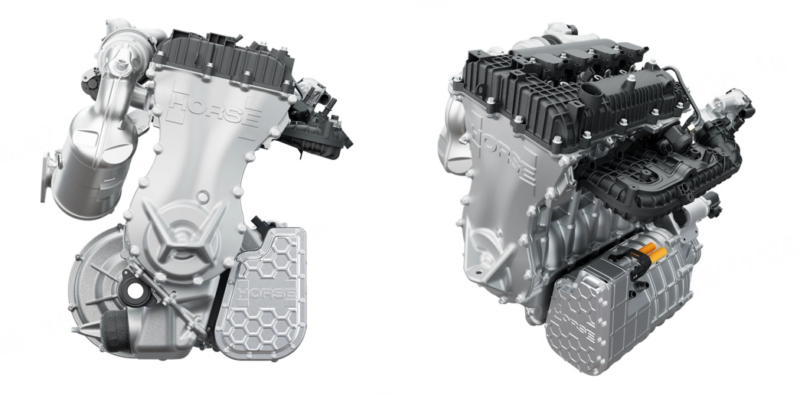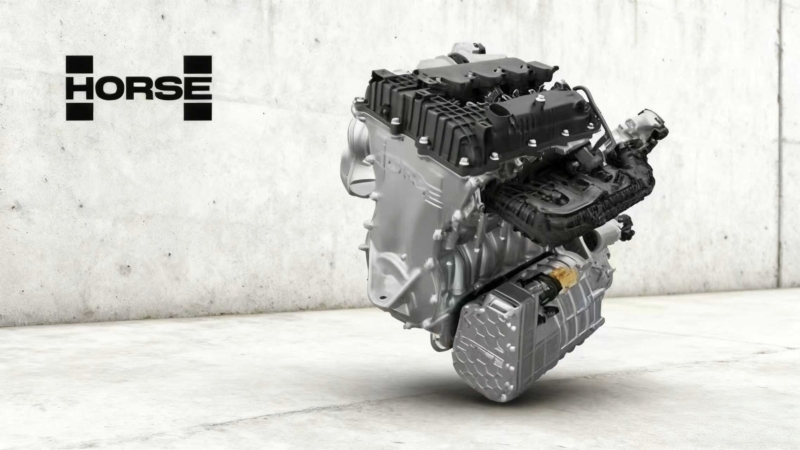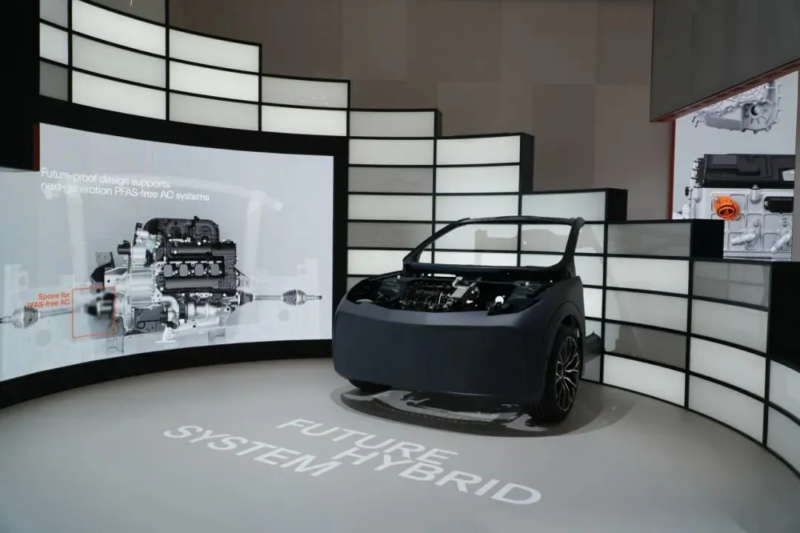Geared toward turning existing electric-only designs into flexible hybrid or range-extended vehicles, Horse Powertrain, the joint venture between Geely Holding and Renault Group, has unveiled a “Future Hybrid System” slated for launch in 2027, as reported by IT-home. The hybrid system, part of Horse Powertrain’s X-Range family, first appeared as a concept at the Shanghai Auto Show earlier in 2025 and was later refined and showcased at the IAA in Munich that same year.
The architecture integrates the internal combustion engine, gearbox, electric motor, and electronic power systems within a compact package. Two variants are offered: a performance version featuring dual electric motors designated P1+P3, with a width of 740 millimetres, and a super-compact variant using a P2 motor at 650 millimetres. Both variants are compatible with a 1.5-litre four-cylinder engine and a dedicated hybrid gearbox. The compact layout reduces the front overhang by approximately 150 millimetres compared to traditional hybrid systems, allowing the powertrain to be installed on the subframe of an existing battery-electric vehicle with minimal modifications to the body structure or production process.

Horse Powertrain states that this hybrid system supports multiple drivetrain configurations, including plug-in hybrid (PHEV) and range-extended electric vehicles (EREV), and can provide both front-wheel drive and all-wheel drive options even in compact cars. The design preserves front-end components typical of pure-electric platforms, such as HVAC and PFAS-free air-conditioning systems, enabling the reuse of many existing EV parts and reducing environmental impact.
Another key feature is its broad fuel compatibility. The system reportedly operates on gasoline, E85 ethanol, M100 methanol, and synthetic fuels, aligning with global trends toward low-carbon, flexible-fuel powertrains. A three-cylinder variant under development could further reduce the system width by about 70 millimetres, improving its suitability for smaller vehicles.
Horse Powertrain, formed in mid-2023, operates globally with 17 production plants, five research and development centres, and roughly 19,000 employees. The new hybrid system aims to enable automakers to quickly convert electric-vehicle platforms into hybrid or range-extended variants without significant reengineering. Industry observers note that this approach reflects a broader strategy to address diverse market preferences and the varying fuel infrastructure across regions.




